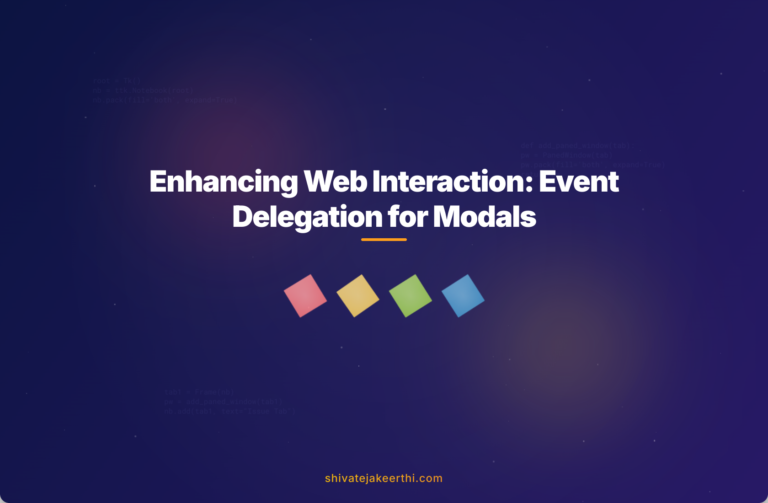Lazy loading content is a popular technique to improve web performance. By loading images, text, or components like modals only when needed—usually when scrolling down—pages load faster initially. Modals and scripts, such as pop-ups, booking forms, or interactive elements, rely heavily on timely script execution and proper loading sequences. However, lazy loading can sometimes cause these scripts and modals to fail if not properly configured.
For many web developers, it’s frustrating to discover that interactive elements fail to load correctly after implementing lazy loading. Suppose you have a common scenario: you’re using a foreach loop to generate city listings dynamically on scroll. Clicking a city badge is supposed to open a modal with more details, retrieved via a GET request. Unfortunately, these modals never open, and your scripts fail silently or with errors in the browser console. Let’s break down why this happens and how to fix these bugs systematically.
Understanding the Problem: Modals & Lazy Loading Conflict
When content loads dynamically through lazy loading, scripts that rely on listener functions to handle user interactions may fail because their target elements don’t exist initially in the DOM. In short, the script execution occurs when the page initially loads, attaching event listeners to buttons and links present at that time. But, dynamically loaded elements do not yet exist, causing the initial script setup to overlook them.
If your script uses a foreach loop with a GET request to load content dynamically as users scroll, this issue becomes apparent. While older script sections function normally, newly injected content via AJAX or JavaScript scrolling mechanisms doesn’t trigger modals or execute scripts properly.
Technical Implementation of Lazy Loaded Modals Using JavaScript
Suppose you’re building a city directory page. As visitors scroll, you fetch more cities and append them to the page incrementally. The JavaScript responsible might look similar to this structure:
let offset = 0;
const loadMoreCities = () => {
fetch('get-cities.php?offset=' + offset)
.then(response => response.json())
.then(cities => {
const cityContainer = document.getElementById('city-list');
cities.forEach(city => {
cityContainer.innerHTML += `
<div class="city">
<button class="open-modal" data-id="${city.id}">
${city.name}
</button>
</div>`;
});
offset += cities.length;
});
};
window.addEventListener('scroll', () => {
const {scrollTop, clientHeight, scrollHeight} = document.documentElement;
if (scrollTop + clientHeight >= scrollHeight - 50) {
loadMoreCities();
}
});
In this simple scenario, each new button within dynamically generated content contains modal triggers, which depend heavily on event listeners added at the start when the DOM is first loaded.
The modal opening function may look like this initially:
document.querySelectorAll('.open-modal').forEach(button => {
button.addEventListener('click', function() {
const cityId = this.getAttribute('data-id');
fetch('get-city-detail.php?id=' + cityId)
.then(response => response.text())
.then(data => {
document.querySelector('#modal-content').innerHTML = data;
document.querySelector('#modal').style.display = 'block';
});
});
});
// Close modal
document.querySelector('#close-modal').addEventListener('click', function() {
document.querySelector('#modal').style.display = 'none';
});
When executed at initial page load, the above script binds click events only to existing elements. New elements created afterwards (lazy loaded) remain without event listeners, resulting in non-responsive modals.
Analysis of Modal Failures in Lazy Loaded Content
Here’s the core issue: your original event listener assignment is limited to the static DOM elements loaded on page load. Elements appended afterward via AJAX, JavaScript pagination, or lazy-scroll techniques won’t be captured. Thus, clicking dynamically generated buttons yields no response since no listener is attached.
Proposed Solutions to Fix Modals and Scripts in Lazy Loading
Here are two effective methods to fix broken modals and scripts in dynamically loaded content:
- Event Delegation: Rather than adding event listeners to every single element, attach one listener to the parent container, and handle interaction through bubbling events effectively.
- Explicit Rebinding: After adding new elements, explicitly re-run the scripts or functions that bind events to ensure everything remains interactive.
Here’s the event delegation approach using plain JavaScript:
document.getElementById('city-list').addEventListener('click', function(event) {
const target = event.target.closest('.open-modal');
if (target) {
const cityId = target.getAttribute('data-id');
fetch('get-city-detail.php?id=' + cityId)
.then(response => response.text())
.then(data => {
document.querySelector('#modal-content').innerHTML = data;
document.querySelector('#modal').style.display = 'block';
});
}
}, false);
With this solution, you no longer need to repeatedly bind event listeners or re-execute scripts after pagination. It simply attaches a single listener that works consistently regardless of when new content is added.
Best Practices for Modals in Lazy Loaded Environments
If you’re frequently dealing with dynamically loaded content and modals:
- Always leverage event delegation for clickable elements on dynamic lists.
- Use clear and specific container IDs to scope your event delegation easily.
- Ensure modal scripts are robust, and capable of dynamically updating their own content reliably.
- Consider integrating known stable libraries like Bootstrap or custom modal components compatible with dynamic content.
For a comprehensive JavaScript guide, check out my articles on JavaScript best practices.
Troubleshooting Your Scripts and Modals
Some common pitfalls when dealing with dynamically loaded content and scripts include:
- Inconsistent event listener attachment.
- Duplicate elements or event bindings causing script conflicts.
- Asynchronous operations not awaited properly, causing timing issues.
When debugging, make strategic use of:
- Browser developer console (Chrome DevTools).
- Logging outputs to identify points of failure quickly.
- Testing incrementally rather than loading large data sets at once.
With careful monitoring and robust event delegation, you’ll quickly overcome these frustrating bugs.
Proper Implementation is Key
Modal and script issues related to lazy loading represent a common scenario impacting many developers. Understanding the root cause—dynamic DOM elements without event listeners—is crucial for resolving the issue and ensuring smooth user experience.
Remember, simplicity is your best friend here. By adopting straightforward event delegation practices and maintaining clean modular code, you’ll significantly increase stability and usability of dynamic interfaces.
Have you faced similar modal and lazy loading conflicts? Share your troubleshooting experiences or ask any specific questions below—I’m always eager to help!



0 Comments